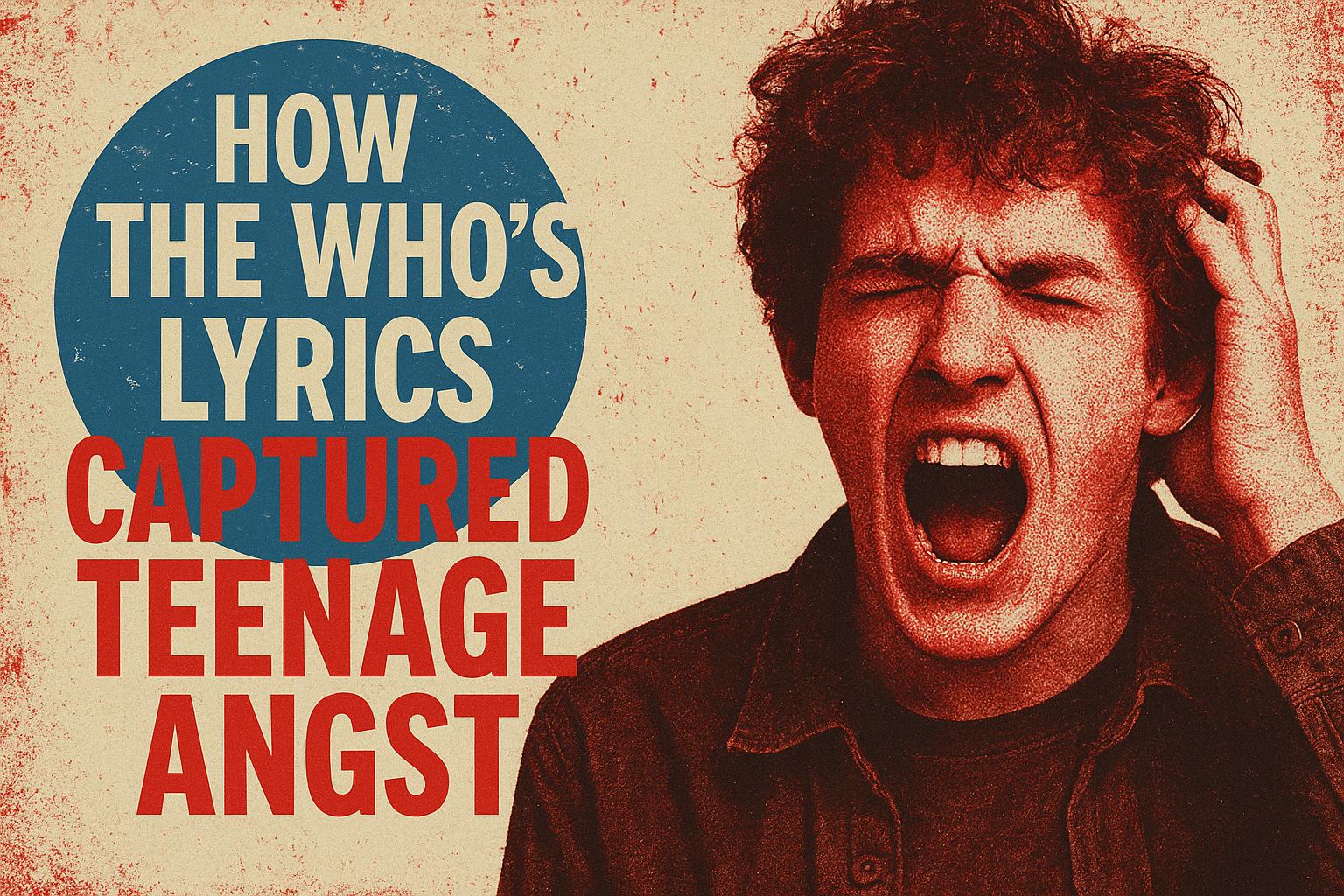The Who’s Connection to Teenage Angst
The Who, a prominent English rock band formed in 1964, became iconic for their powerful music and poignant lyrics. Their ability to capture the raw emotions of teenage angst helped solidify their enduring appeal. By exploring themes such as rebellion, identity, and social alienation, The Who resonated with a generation of youth striving to find their place in a rapidly changing world.
For decades, the music of The Who has served not only as a soundtrack for youthful rebellion but also as a meaningful exploration of complex emotions. Unlike many bands of their time, The Who went beyond the traditional rock and roll themes, probing deeper into the psyche of their audience. They offered a voice to young people who felt lost or misunderstood, creating a sense of unity among listeners. Their nuanced handling of universal adolescent challenges makes them as relevant now as they were in the 1960s.
Themes of Rebellion
Central to The Who’s music is the overwhelming theme of rebellion. During the 1960s, a period of significant social transformation, their music mirrored this change. The era was defined by a movement against traditional values, and The Who tapped into this spirit of defiance. Their song “My Generation” is exemplary of this mindset. Through lyrics like “Hope I die before I get old,” they encapsulated a widespread contempt for the status quo among young people. This song, with its raw energy and unapologetic tone, swiftly became an anthem for disenchanted youth.
Through rebellion-focused lyrics, The Who challenged the existing societal norms, advocating for personal freedom and expression. This was critical in an era where conformity to older generational values was expected. Young people were searching for something new and revolutionary, and the band’s music provided just that. By refusing to adhere to the norm, The Who encouraged listeners to question authority and embrace their individuality.
Identity and Self-Discovery
Another layer in The Who’s explorations is the theme of identity and self-discovery. The tumultuous adolescent years are often marked by a search for self, and this quest is portrayed brilliantly in their music. The song “The Seeker” illustrates a protagonist in pursuit of truth and self-comprehension, reflecting a profound journey of personal discovery and existential questioning.
In many ways, The Who acted as an unintentional guide for youth, using music to pose critical questions about life, identity, and purpose. Pete Townshend, the principal songwriter, embedded these inquiries in his work, resonating with teenagers grappling with similar issues. This focus on self-exploration provided a mirror for listeners, helping them navigate their path toward understanding themselves and the world around them.
The narrative of seeking personal identity amidst societal chaos is a timeless concern and remains particularly relevant. The Who’s ability to articulate this quest for self-awareness, offering no simple solutions but rather provoking introspection, is part of their enduring appeal.
Addressing Social Alienation
Feelings of social alienation often rife during teenage years are profoundly encapsulated in The Who’s music. The band’s lyrics resonate with those who feel like outsiders, providing a sense of camaraderie and solidarity. Songs like “Substitute” and “I’m a Boy” poignantly convey emotions tied to inadequacy and societal expectations.
The lyrics in “Substitute,” deal with feelings of being replaced or not being good enough, deftly depicting the internal conflict many youngsters experience. “I’m a Boy,” on the other hand, challenges traditional gender roles, emphasizing the pressure to conform to societal norms. By addressing these themes head-on, The Who gave a voice to those who felt marginalized or invisible.
Pete Townshend’s songwriting skillfully communicated the complexities of feeling like an outcast, validating the struggles of their audience. For many, this expression of social alienation translated into a sense of being understood and less isolated, fostering a profound connection between the band and its listeners.
The Impact on Generations
The Who’s ability to encapsulate teenage angst in their music has resonated far beyond their initial audience. Over the decades, their songs have continued to inspire and connect with new generations of listeners who experience similar feelings of confusion, frustration, and alienation.
The band’s influence extends past their immediate era into modern times, largely due to their authentic portrayal of adolescent complexities. They have become a staple in music history, with their themes remaining relevant even amid changing social landscapes. As youth continue to face challenges unique to each generation, the universality of The Who’s music has allowed it to transcend time, impacting audiences old and young alike.
In conclusion, The Who’s exploration of themes like rebellion, identity, and alienation has rendered them a beacon for those seeking understanding and expression through music. Their enduring legacy in rock music indeed lies in their authenticity and their ability to capture the multifaceted experiences of adolescence. While societal contexts may evolve, the core feelings of searching for one’s self and striving for autonomy remain unchanged, ensuring The Who’s place as an enduring force in rock music history.
